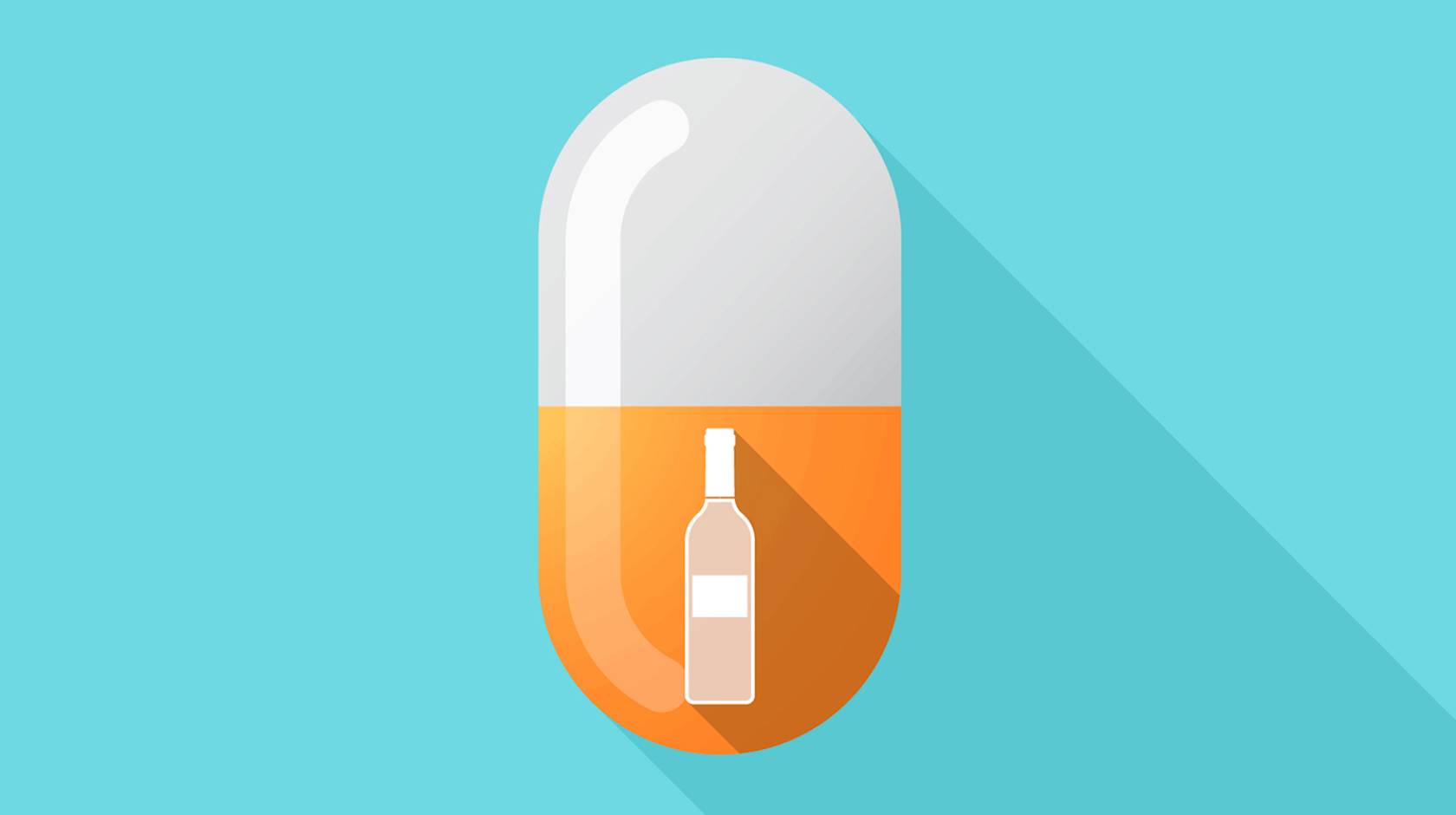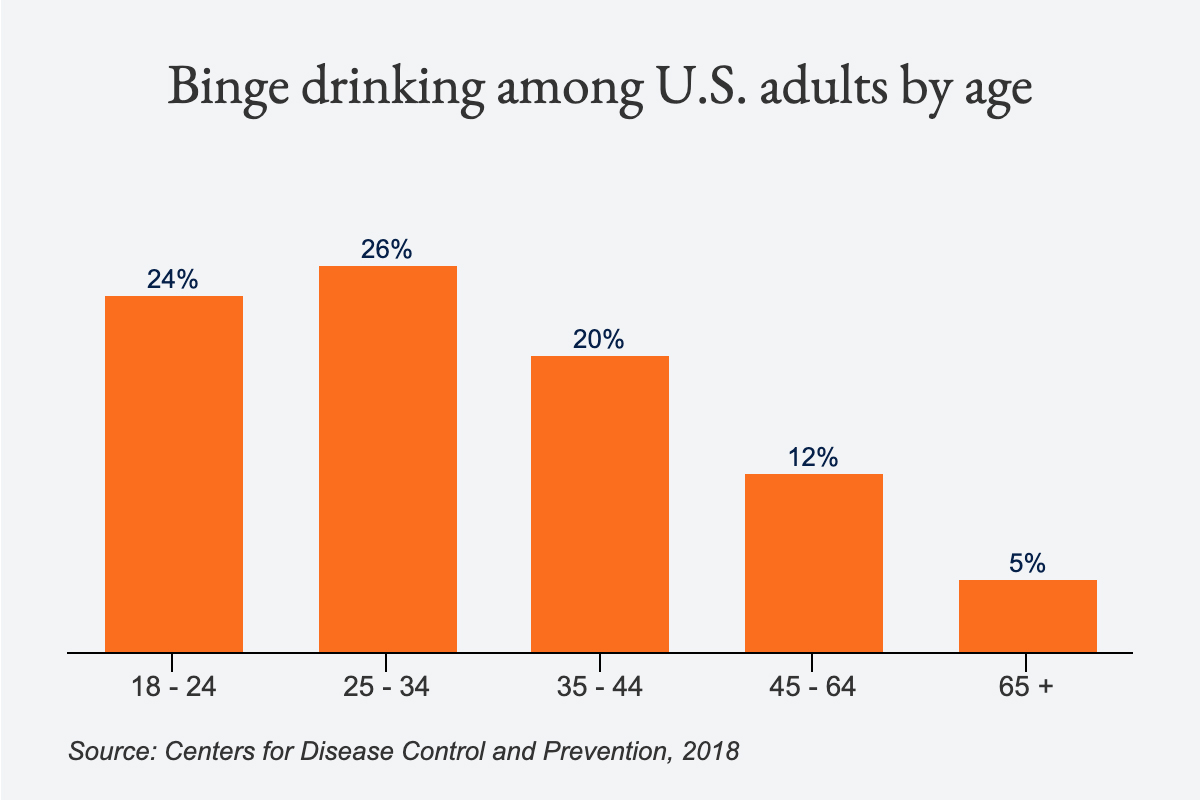Laura Lopez Gonzalez, UC San Francisco

Almost one in six Americans have reported binge drinking. Now, people looking to cut back can take a single pill just before drinking to curb consumption.
Recent research by UCSF Community Health Systems Professor Glenn-Milo Santos, Ph.D., MPH, shows naltrexone — a prescription drug used as a daily pill or monthly injection for decades to treat alcohol use disorder — may reduce binge drinking if taken as needed without the daily pills or painful shots.
We asked Santos how naltrexone can help people nix those extra rounds and avoid hangovers.
Binge drinking vs. heavy drinking, what’s the difference?
Binge drinking is defined as having four or more drinks within about three hours in females or five or more drinks over the same period in males.
If you drink eight or more drinks as a female, or at least 15 drinks weekly as a male, the CDC considers this heavy drinking.
How well does naltrexone work to reduce drinking?
Very. Multiple studies have consistently shown that daily naltrexone treatment or monthly injections can help people with alcohol use disorder, which includes binge drinking, cut down their use. Now, our study goes one step further, showing that naltrexone taken only as needed or right before someone might be tempted to drink reduces binge drinking. In the long-term, it may help people develop healthier relationships with alcohol that can lead to sustained reductions in drinking, even without the medication.
How does naltrexone reduce alcohol consumption?
When folks drink, they often feel “buzzed,” or a sense of pleasure. Naltrexone blocks that feeling and makes drinking less fun. For some people, this can help manage the volume of drinks they consume. Naltrexone also blocks the craving for alcohol and this could help folks avoid drinking when they have an urge to drink.
How can I take naltrexone?
Until now, it was typically taken as a daily pill or monthly injection from a health care provider. Now, some patients can also take pills as needed.
I want to decrease my drinking but don’t like taking daily pills, could naltrexone still be an option for me?
Yes. Our recent UCSF study had folks take a single pill of naltrexone during times when they craved alcohol or before events when they thought they might be at risk for heavy drinking — such as a work holiday party.
People who took naltrexone in this as-needed approach binge drank less and drank less overall after three months in our study. What’s really important to know is that they were able to continue drinking less even six months after they stopped taking the medication.
This suggests that naltrexone can potentially have a longer-term effect in helping people reduce their drinking.
Why did naltrexone keep working even after people stopped taking it?
We’re still studying this but it could be because naltrexone allowed people to manage their alcohol consumption to a point where they had a better relationship with their drinking and that allowed them to sustain lower levels of drinking.
Does naltrexone have side effects?
People who take naltrexone may experience nausea, headaches, dizziness, anxiety, tiredness and trouble sleeping. In our study, side effects were uncommon, mild and tended to go away after about two weeks.
But if side effects last a long time or get worse, you should tell your doctor.
Who should consider taking naltrexone?
Individuals with mild, moderate or severe alcohol use disorder and who are interested in medication to manage their drinking should speak to their health care provider.
Historically, this medication has been prescribed more for people with moderate to severe alcohol use disorder but we know that addressing a mild or moderate alcohol use disorder early could prevent people from progressing into a more severe alcohol use disorder, which is harder to address later.

What is alcohol use disorder?
Alcohol use disorder is a medical condition in which people have trouble stopping or controlling their alcohol use even when drinking negatively impacts their relationships with family and friends, work or what they like to do. Over time, misusing alcohol can change your brain, and make you more likely to relapse even if you quit or drastically reduce your use.
People can have mild, moderate or severe forms of alcohol use disorders. Contrary to popular belief, the vast majority of people who binge drink have a more mild or moderate form of the condition. Still, even occasional binge drinking can lead to serious health issues.
How do I know if I have alcohol use disorder?
Your health care provider can ask you questions like how often you drink, how much you drink and how this impacts your life to determine if you have alcohol use disorder.
Who should avoid naltrexone?
Naltrexone blocks the effects of opioids or painkillers so people on opioid medications should not take naltrexone and neither should people being treated for opioid use disorder with methadone or buprenorphine.
Folks like these could look at other medications to curb drinking, like acamprosate.
How can I get naltrexone?
You can talk to any primary care physician, nurse practitioner or physician’s assistant about medications, including naltrexone, that you can use to reduce your drinking. Counseling may also help.

